Lena Siepker is a doctoral researcher in political science at the University of Münster. Having an interdisciplinary background, her current research focuses on investigating developments in the democratic system and their impact on sustainability policy. She is particularly interested in deliberative participation, especially concerning trends of increasing social and political inequality and critical perspectives of agonistic and radical democratic approaches.
Countries: Germany
Doctoral researcher in Economics at the Düsseldorf Institute for Competition Economics (DICE)
Dennis Gottschlich is a doctoral researcher in Economics at the Düsseldorf Institute for Competition Economics (DICE). His broad research interests include labor economics, future of work and unintended side-effects of competition on workers. He is an applied empirical microeconomist and focus on mental health, social mobility and social capital. Currently he studies economic determinants of mental illnesses, and more general, in psychological distress. He is on deepen the knowledge in this fields to improve policies and highlight the importance of this underresearcherd topic mental health. His current research focuses on the nexus between austerity measures and depressions.
In recent years, European citizens have witnessed a rise in inequality, especially socio-economic, alongside an increase in vote share for radical right populist parties. By examining case studies from Italy, Hungary, and Spain (with the comparative case of Germany), this policy study argues that the rise of populism is not only linked to economic trends but also to other constitutional changes and institutional settings characterising European countries with a focus on economic inequality as the explanatory variable for political participation.
Political Mentor: Gaby Bischoff, MEP S&D
Academic Mentor: Eunice Goes, Professor of Politics at Richmond American University of London
Doctoral Researcher in Urban Planning, Design, and Policy at the Department of Architecture and Urban Studies of the Polytechnic University of Milano
Doctoral researcher in Economics at the Düsseldorf Institute for Competition Economics (DICE)
Research assistant at the Faculty of Law at the University of Zagreb
Joint PhD candidate at the University of Edinburgh and KU Leuven
Research Support Officer at Eurofound
Chiara was always driven by curiosity and interest in research, during her education in Rome, Paris, Frankfurt and Melbourne. Chiara obtained in 2016 a Bachelor in Economics and Business and, in 2019, a Master’s degree in Economics and Finance, together with a second international excellence master called QTEM (Quantitative Techniques for Economics and Management), with a final dissertation about the impact of flexicurity on Managerial practices. Workwise, she has been intern in various institutions, was an analyst at the ECB and it is currently working as a Research Support Officer at Eurofound, the agency of the European Union for improving working and living conditions.
Post doctoral researcher Hertie School
Niklas Kossow is a researcher, political activist and project manager from Berlin. He recently defended his PhD on the use of digital technologies in the context of anti-corruption movements at the Hertie School. During his PhD, Niklas also worked as a researcher and consultant for Transparency International, the GIZ, the UNDP and Freedom House. Currently, Niklas is working as a project manager at CityLAB Berlin where is working redeveloping Berlin’s Smart City strategy and citizen participation projects. He is a candidate of the German Social Democratic Party for the Berlin state parliamentary elections 2021.
Trade Unions and the multiple crisis of environment, society, economy and work
This policy study focuses on trade union approaches to the multiple crises in a sector critical for the sustainability transformation: aviation. Based on empirical research, the authors find that unions, under pressure to face contradictory and complex problems, take divergent positions on societal-environmental issues and their solutions - verging from social-ecological transformation-focused to defensive stances, also in their collaboration with social movements for change.
Read the paper:
Trade Unions and the multiple crisis of environment, society, economy and work
Political Mentor: EP Vice President and S&D MEP Evelyn Regner
Academic Mentor: David Bailey, Senior Lecturer, Department of Political Science and International Studies, School of Government, University of Birmingham
PhD candidate University of Erfurt
Johannes G. v. Luckner is a doctoral researcher in law at University of Erfurt in Germany. Born and raised in Germany, he studied law in Frankfurt (Main), Rome and Florence. His professional experience is spread out over various areas, ranging teaching in a high school during a voluntary service in Panama, over diplomacy in the German Foreign Office (Embassy to Italy, Rome) to European politics in the European Commission (DG Justice, Criminal Law).
In his PhD, he works on differentiation in European law, especially on the enhanced cooperation mechanism.
How to unlock the European Investment Bank’s potential: four reforms
The European Investment Bank (EIB) is the EU’s multilateral development bank. In this FEPS YAN policy study, the authors suggest four reforms that would help progressive policymakers to utilize unlock the EIB’s potential to play a greater role in the EU economy and its transition to a more resilient, climate-neutral, and progressive economy.
First, the authors suggest the EIB adopts more comprehensive lending targets based on social and environmental criteria. Second, they highlight the need for a stronger focus on equity-like instruments rather than debt instruments, especially in the ongoing response to the Covid-19 crisis. Third, they propose to strengthen the EIB’s accountability towards the European Parliament to ensure a legitimate political direction and democratic control of its activities. Fourth, they propose to convert the EIB’s retained profits into paid-in capital, unlocking up to €110 billion of additional lending capacity. To simultaneously accomplish increased democratic accountability, the authors suggest converting the EIB’s retained profits into EU capital and thus making the EU an EIB shareholder.
Read the paper:
How to unlock the European Investment Bank’s potential: four reforms
Political Mentor: EP Vice President and S&D MEP Pedro Silva Pereira
Academic Mentor: Carlo d' Ippoliti, Associate professor of political economy at the Department of Statistical Sciences of Sapienza University of Rome.
PhD candidate Kingston University London
Max Weber Fellow at the European University Institute, Florence
Marius S. Ostrowski is Max Weber Fellow at the European University Institute, Florence, and was previously Examination Fellow in Politics at All Souls College, University of Oxford. His interests lie in the theory and history of social democracy and European unification, and his publications include Left Unity: Manifesto for a Progressive Alliance (2020) and the edited series of the Collected Works by the socialist thinker Eduard Bernstein (2018-). He is Online and Social Media Editor of the Journal of Political Ideologies, and Founding Editor of its affiliated blog Ideology Theory Practice.
Across the political spectrum, there is widespread agreement that the European Union (EU) needs a palpable social dimension. In this FEPS YAN policy study, the authors provide a research-driven policy proposal on how this social dimension can be achieved in the light of the diversity of national welfare systems in the EU.
They argue that a Universal Basic Income (UBI) could be a conceptually appealing policy to be implemented at EU level, complementing national welfare states. Due to the Covid-19 pandemic, the policy is receiving unprecedented and ever-increasing attention, and enjoys widespread public popularity, but is viewed with scepticism by major political parties.
This paper is a unified source of information for progressive policymakers, advocates, consultants, and researchers who are interested in (a) how a European UBI could be concretely designed and (b) the reasoning and justifications behind its concrete design decisions. In order to formulate a policy proposal that could potentially foster cross- partisan compromises and move public policy preferences and political reality closer together, the authors conducted a comprehensive review of historical and contemporary UBI debates, gathered the key arguments presented in academic, popular, political, and organisational sources, and reflected on them from logical, normative, and empirical perspectives.
Based on the most plausible arguments for and against a UBI, they designed a concrete policy proposal for a UBI at the EU level that responds to broadly progressive ideals from different partisan backgrounds. The result is an ambitious yet feasible proposal that bridges political divides and, if implemented, would be the most substantial leap for Social Europe yet.
Read the paper:
The European Basic Income
Political Mentor: S&D MEP Agnes Jongerius
Academic Mentor: Lorena Lombardozzi, Senior Lecturer in Economics at the Open University.
Post-doctoral researcher at the Vienna University
Hendrik Theine is a post-doctoral researcher at the Institute for Heterodox Economics at the Vienna University of Economics and Business with extensive interest in progressive economic approaches. His current research involves critical political economy analyses in the areas of media, platform capitalism and climate change. Based on a pluralist perspective, he uses both qualitative and quantitative methods, for instance, discourse analysis, text mining and network analysis.
Taking the temperature of the EU Green Deal
Photo: @PamelaRußmann
The European Green Deal (EGD) aims to make Europe climate neutral by 2050 while ensuring a just transition for all. However, the EGD’s high level of ambition and broad scope is not adequately reflected in member states’ commitments, and interest groups attempt to shape the EGD according to their preferences.
Given these circumstances, how can the promise of a green and just European Green Deal be realised? To shed light on this research question, the authors of this FEPS YAN Policy Study build on insights from political economy on the influence of interest groups in policymaking. Analytically, the authors propose a framework that integrates distinct sources of power (structural vis-à-vis instrumental) and a range of political strategies (quiet vis-à-vis noisy politics).
Empirically, they study two cases central to the EGD: the ‘EU Biodiversity Diversity Strategy for 2030’ to protect nature and ecosystems; and the ‘Hydrogen Strategy’ to power a climate-neutral economy. Based on lobbying activities with members of the European Commission and the European Parliament, the authors identify key stakeholders, their framing, and strategies. The findings have important implications for understanding the interplay of relevant actors and EU institutions and their influence on European policy.
Read the paper:
Taking the temperature of the EU Green Deal
Political Mentor: S&D MEP Delara Burkhardt
Academic Mentor: Robert Ladrech, Emeritus Professor of European Politics, Keele University, UK
PhD candidate University of Kassel
Emre Gömeç is a Ph.D. candidate at the University of Kassel and a Ph.D. fellow of Hans Böckler Foundation in Germany. Also, he is a researcher at The Academic-Industry Research Network (theAIRnet) in the United States. His research fields are financialization, corporate governance, and innovation as well as the Information and Communication Technologies (ICT) sector. He compares the corporate governance models of two telecommunication companies, Nokia and Ericsson, as a case study in his dissertation.
Three ideas for a stronger Social Europe in a post-COVID-19 recovery
Research fellow King's College London
Dr. Thomas Froehlich is a research fellow at the Department of War Studies at King's College London. His work focuses on the geopolitical implications of the global energy transition, but he is also interested in "how to get things done" in international politics. Thomas holds a Master's degree in Political Science from the University of Munich and a PhD in International Relations from King's College London, where he examined Brazil's international ethanol strategy. Thomas also works as a political risk adviser and a grassroots political organizer.
The European Green Deal (EGD) aims to make Europe climate neutral by 2050 while ensuring a just transition for all. However, the EGD’s high level of ambition and broad scope is not adequately reflected in member states’ commitments, and interest groups attempt to shape the EGD according to their preferences.
Given these circumstances, how can the promise of a green and just European Green Deal be realised? To shed light on this research question, the authors of this FEPS YAN Policy Study build on insights from political economy on the influence of interest groups in policymaking. Analytically, the authors propose a framework that integrates distinct sources of power (structural vis-à-vis instrumental) and a range of political strategies (quiet vis-à-vis noisy politics).
Empirically, they study two cases central to the EGD: the ‘EU Biodiversity Diversity Strategy for 2030’ to protect nature and ecosystems; and the ‘Hydrogen Strategy’ to power a climate-neutral economy. Based on lobbying activities with members of the European Commission and the European Parliament, the authors identify key stakeholders, their framing, and strategies. The findings have important implications for understanding the interplay of relevant actors and EU institutions and their influence on European policy.
Read the paper:
Taking the temperature of the EU Green Deal
Political Mentor: S&D MEP Delara Burkhardt
Academic Mentor: Robert Ladrech, Emeritus Professor of European Politics, Keele University, UK
Ph.D. candidate Freie Universität Berlin
Timon Forster is a Ph.D. candidate in International Relations at the Berlin Graduate School for Global and Transregional Studies, Freie Universität Berlin. His research interests include international political economy, deliberation, the distributional consequences of economic reforms, and global public health. In the FEPS YAN, he is studying the politics of the European Green Deal.
The European Green Deal (EGD) aims to make Europe climate neutral by 2050 while ensuring a just transition for all. However, the EGD’s high level of ambition and broad scope is not adequately reflected in member states’ commitments, and interest groups attempt to shape the EGD according to their preferences.
Given these circumstances, how can the promise of a green and just European Green Deal be realised? To shed light on this research question, the authors of this FEPS YAN Policy Study build on insights from political economy on the influence of interest groups in policymaking. Analytically, the authors propose a framework that integrates distinct sources of power (structural vis-à-vis instrumental) and a range of political strategies (quiet vis-à-vis noisy politics).
Empirically, they study two cases central to the EGD: the ‘EU Biodiversity Diversity Strategy for 2030’ to protect nature and ecosystems; and the ‘Hydrogen Strategy’ to power a climate-neutral economy. Based on lobbying activities with members of the European Commission and the European Parliament, the authors identify key stakeholders, their framing, and strategies. The findings have important implications for understanding the interplay of relevant actors and EU institutions and their influence on European policy.
Read the paper:
Taking the temperature of the EU Green Deal
Political Mentor: S&D MEP Delara Burkhardt
Academic Mentor: Robert Ladrech, Emeritus Professor of European Politics, Keele University, UK
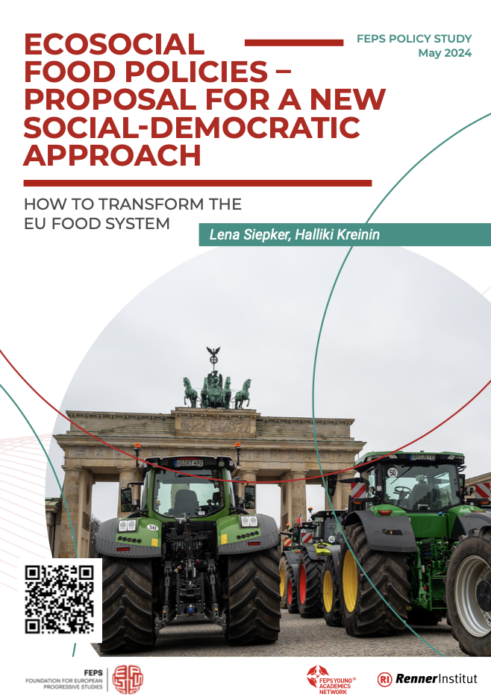
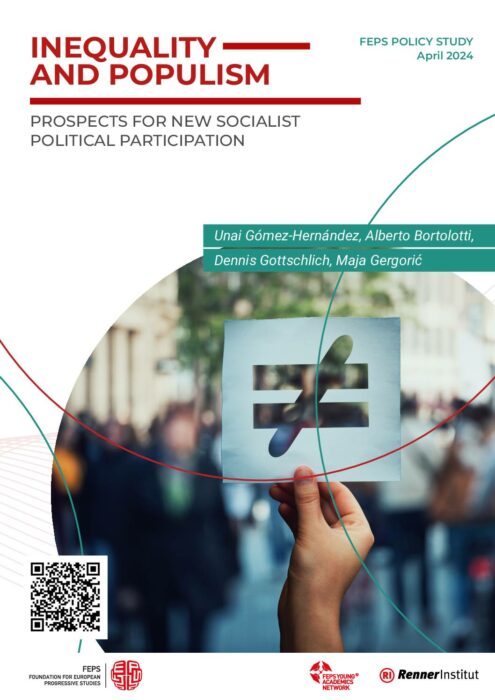
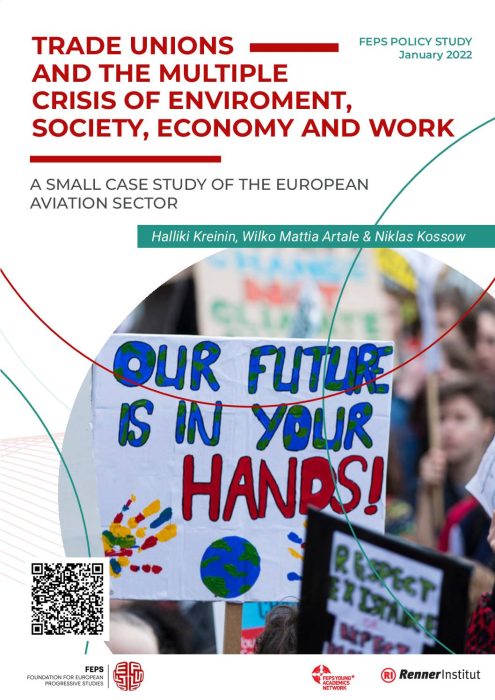
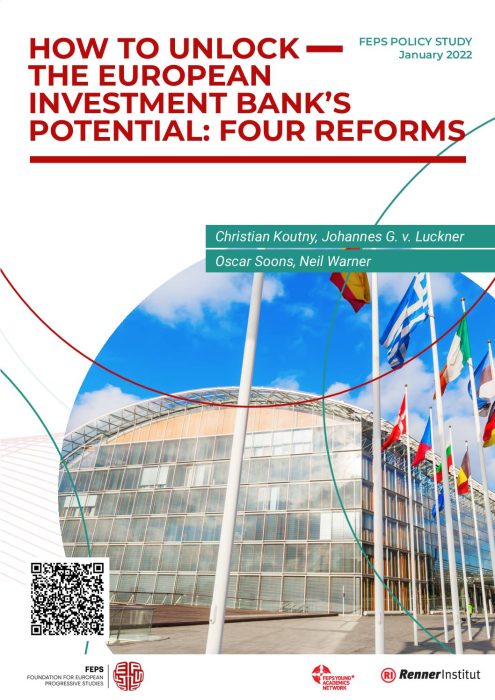
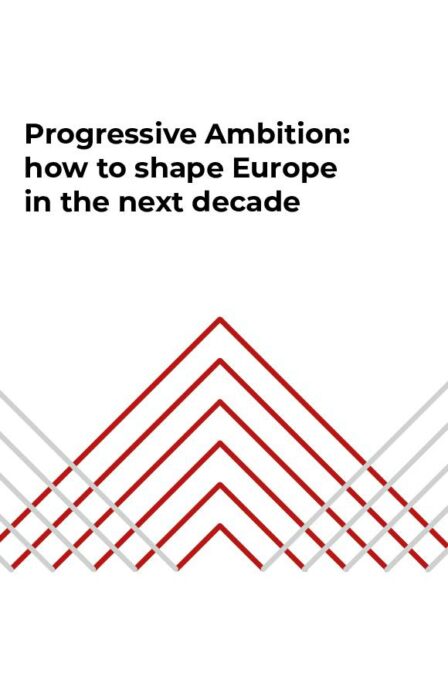
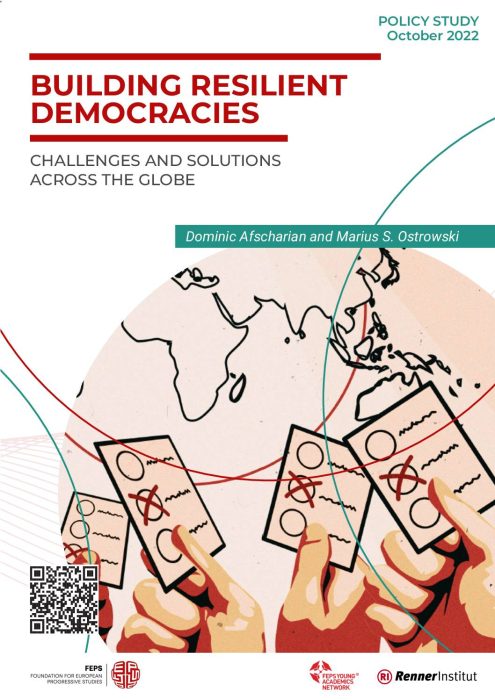
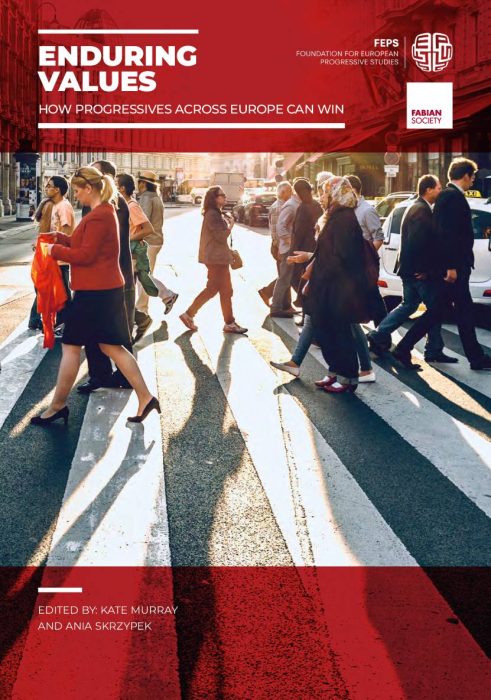
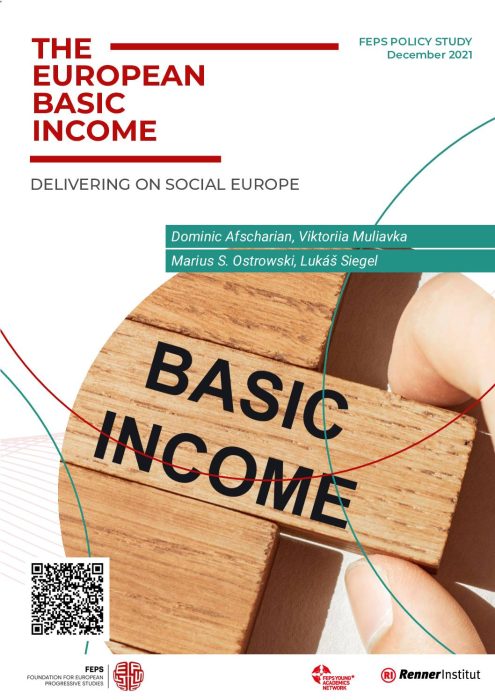
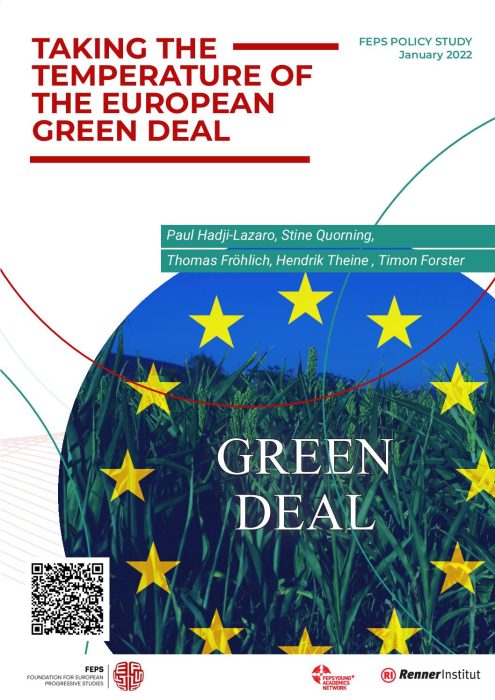
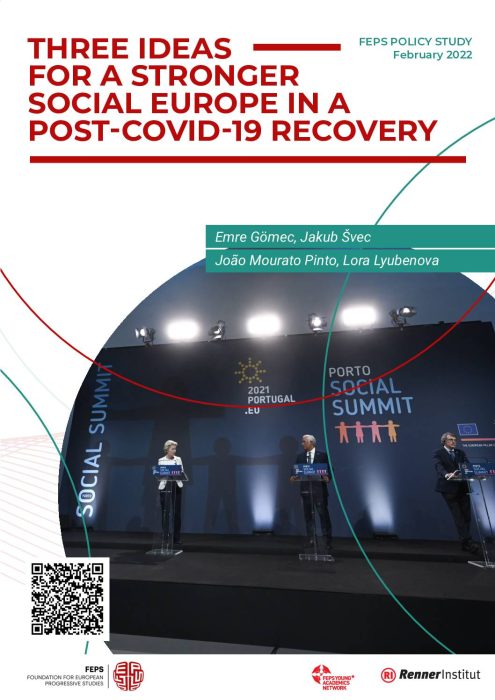
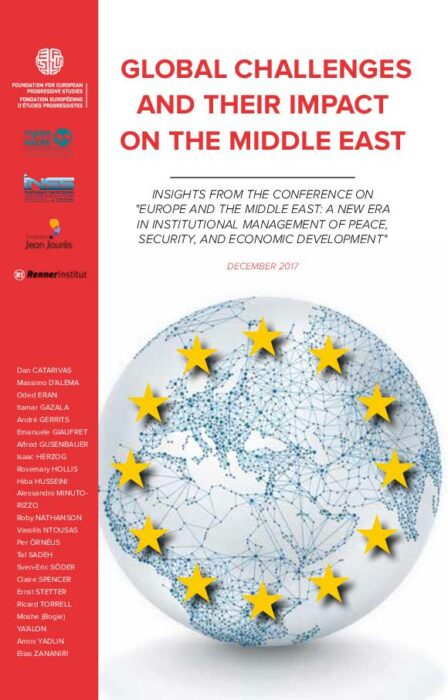
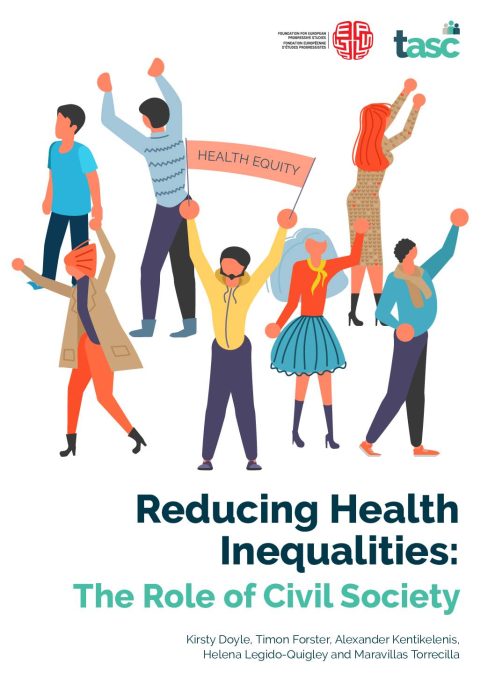
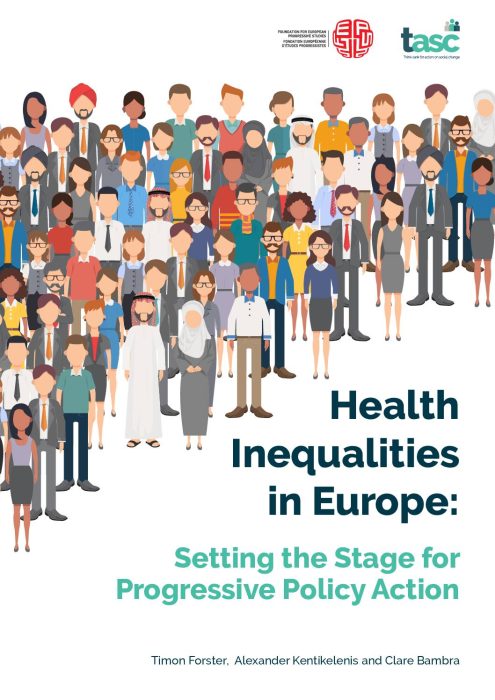
Through its eclectic 20 principles, the European Pillar of Social Rights is an opportunity to break silos and look at social development as the network of challenges that it truly is.
Departing from the rather long history of European social rights, the implementation of the EPSR must follow a holistic approach, identifying synergies with discussions it already hints at in its 20 principles.
In order to contribute to the identification of such synergies, this paper attempts to shed light on three transversal issues that national governments and the European Commission must bear in mind when implementing the EPSR: civil rights; labour relations; and gender equality. The analysis departs from the setting of the current model of welfare state in post-World War II Europe and it ends with the Porto Summit 2021, reflecting on the documents approved and what they can mean for a post-COVID-19 Social Europe.
Read the Paper:
Three ideas for a stronger Social Europe in a post- Covid 19 recovery
Political Mentor: YES Vice President and S&D MEP Alicia Homs
Academic Mentor: Matjaz Nahtigal, Associate professor at the Faculty of Social Sciences, University of Ljubljana